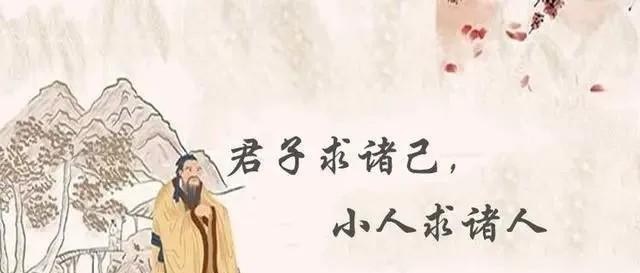
Sentence 114:
[It is therefore the gentleman who has all his own self, and then he asks for all, and there is no self, and then he is not. 】
From the Book of Qunshu Zhizhi, volume VII, Book of Rites.
A virtuous leader must first have good deeds himself and then lead others to do good; he must first demand that he has no evil deeds, and then he must forbid others to do evil.
"Gentleman" has two meanings: one is a virtuous person, and the other is a person who is in power. A virtuous leader, "has self." For oneself, one has good virtues and good deeds, and "then asks others" will demand and drive others to have good deeds. Before you do it yourself, you definitely don't ask others first.
The ancients also taught people, "If you are right and do not seek from others, you will have no complaints." Straighten yourself out and do yourself well, but if you don't ask others, you won't cause resentment from others. If you ask others everywhere, but you can't do it yourself, others will be unconvinced, and you will have a rebellious psychology.
We are now studying traditional culture, we feel that traditional culture is particularly good, and we also hope that others will come to learn, so we want to introduce traditional culture to others when we have the opportunity, which is kind. But if we introduce a lot of teachings to others that we have not put into practice, it will be difficult for people to build confidence and easily arouse the suspicion of others. Others will say, "If traditional culture is so good, why don't you do it yourself?" It doesn't seem to be much better. This invisibly makes people doubt the teachings of the sages, and even resent our actions.
Therefore, the "University" said: "After the cultivation of the body, the family is together and then the country is governed, and the country is governed and the world is peaceful." "The order of learning is very important, and we should not spend time on introducing it to others, but first ask ourselves, not others. If you do a good job yourself, you will naturally influence others, and naturally you will influence others and drive others.
"There is no self, and then there is no one." There is no bad deed of oneself, and then one forbids others to do evil. If people ask each other for everything, but they have such bad habits, the other party will be difficult to accept. There is a saying called "fifty steps to laugh and a hundred steps", that is, you have not done a good job, and it is impossible to hope that others will do a good job.
In "The Mean", it is said that the gentleman's self-cultivation is like an archer shooting an arrow, when he shoots the arrow out, but "loses the right bird" and does not hit the bull's-eye. What kind of attitude should it be? He will immediately reflect on himself, where is his skill not exquisite enough, where is there room for improvement? The self-cultivation of a gentleman is also like archery, everything is not in line with his own wishes, he has not reached the ideal state, and he must reflect on himself in turn, whether his virtue and ability are lacking.